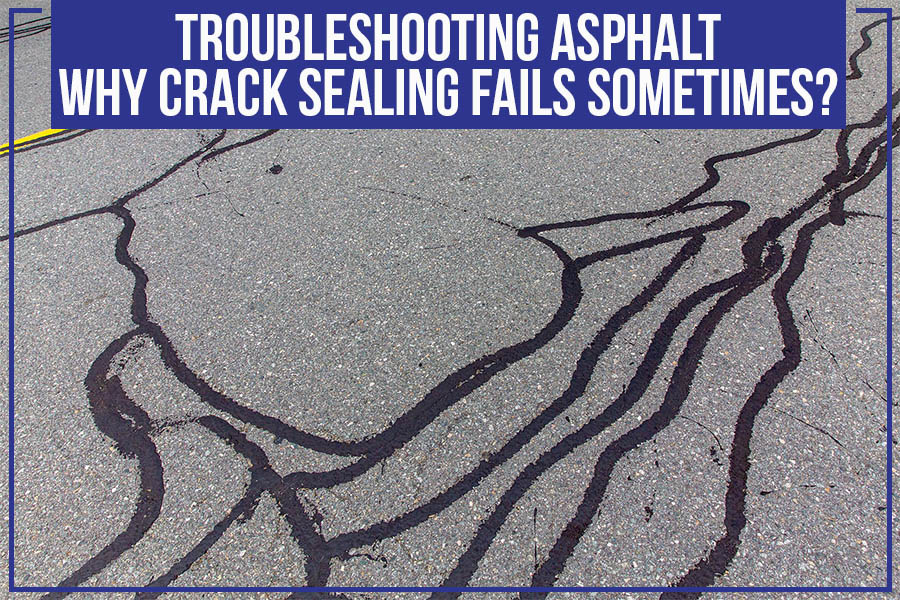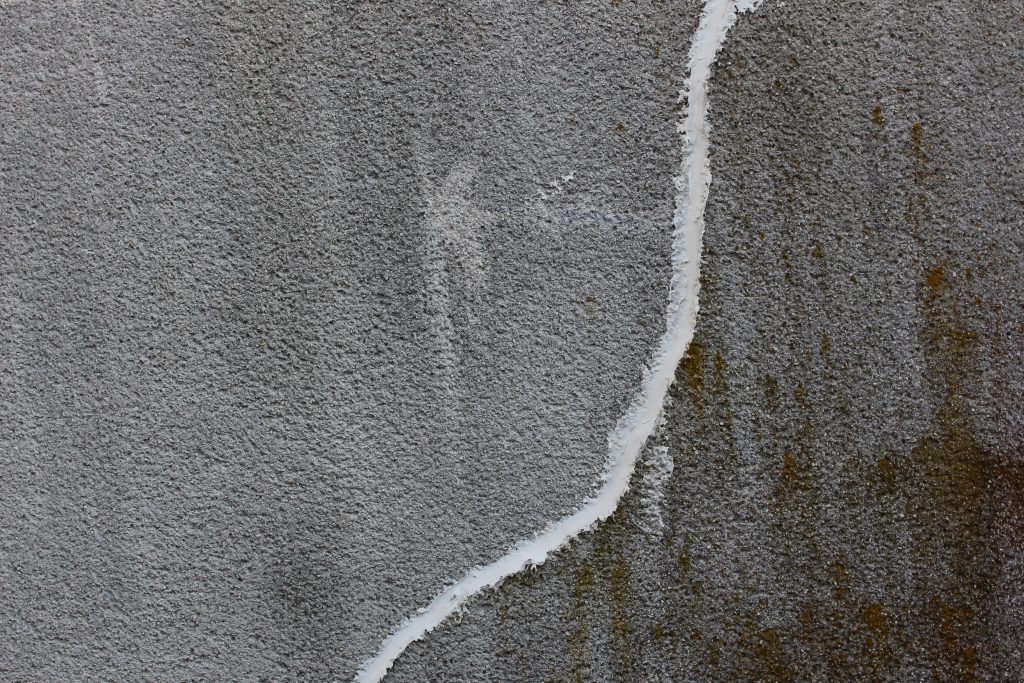
Key Takeaways:
- Asphalt can crack and crumble if not properly maintained.
- Several common causes of asphalt failure include poor drainage, improper installation, and tree root damage.
- Inspecting your driveway or parking lot for problems to regularly prevent asphalt failure and address them as soon as possible is essential.
- Proper maintenance of your asphalt pavement will extend its lifespan and help ensure its long-term success.
Asphalt is a popular material used in driveways and parking lots. Over time, it can crack and need to be repaired. A common repair is to apply a crack sealer, which is meant to fill in the cracks and keep water out. However, many homeowners find their asphalt cracking, even after applying the sealer. So what’s going on? Why isn’t the sealer working? This blog post will explore possible reasons why your crack sealer repair might fail.
What Is Crack Sealer?
It’s a repair method used to fill in cracks in asphalt. It’s a thick, tar-like substance applied using a special applicator. This sealer aims to seal the cracks so that water cannot get into them and cause further damage.
There are two main types of crack sealer: cold and hot. The cold sealer is applied at lower temperatures, while the hot sealer is applied at higher temperatures.
Read: How to seal a driveway?

Why Is My Crack Sealer Repair Failing?
There are several reasons why your crack sealer repair might be failing. Let’s take a look at some of the most common causes:
1. The Cracks Are Too Big
If the cracks are more than a quarter inch wide, the sealer cannot fill them correctly. To fix this, use a cold patch or hot mix of asphalt to fill the cracks before applying the crack sealer.
2. The Surface Is Not Clean
If there is any dirt, dust, or debris on the surface of the cracks, then the crack sealer will not be able to adhere properly to the surface. So, you must clean the surface of the cracks with a wire brush or power washer before applying the sealer.
3. The Temperature Is Too Cold
Temperature below 60 degrees Fahrenheit does not allow the sealer to cure properly. You can prevent this problem by waiting for warmer weather before applying the crack sealer.
4. The Crack Sealer Is Old
If the sealer has been in storage for more than a year, it may have gone bad. Buying a new pack of sealers will help you prevent issues caused by old sealers.
Related: Crack sealing vs. crack filling.
The Different Types of Asphalt Cracks & How to Fix Them
1. Alligator Cracks
Alligator cracks are one of the most common types of asphalt cracks. These cracks resemble the skin of an alligator. Alligator cracks are caused by a lack of structural support for the asphalt. Several factors, including poor drainage, excessive traffic, and soil erosion, can impact this. You can repair alligator cracks with a cold patch or hot mix asphalt.
2. Block Cracks
Block cracks are characterized by large, rectangular cracks that run in a linear pattern. Block cracks are caused by shrinkage of the asphalt as it cools. They can also be caused by settlement or the heaving of the underlying soil.
3. Edge Cracks
Edge cracks form along the edges of the asphalt. They are caused by a lack of support at the edges of the asphalt, which can be due to poor drainage or inadequate compaction. Edge cracks can also be caused by thermal cracking when the edges of the asphalt cools faster than the rest of the pavement.
4. Linear Cracks
Linear cracks are long, thin cracks that run in a straight line. They are caused by the contraction and expansion of the asphalt as it heats and cools. Linear cracks can also be caused by the settlement or heaving of the underlying soil. You can repair linear cracks with a cold patch or hot mix asphalt.
Common Causes Of Asphalt Failure And How To Prevent Them
1. Poor Drainage
Asphalt failure is caused by poor drainage. When water is allowed to pool on the surface of the asphalt, it can cause the asphalt to crack and crumble. Ensuring that your asphalt driveway or parking lot has good drainage is critical to prevent this. You can accomplish this by providing a slope to the surface that allows water to run off and installing gutters or drains around the perimeter of the asphalt.
2. UV Damage
Another common cause of asphalt failure is UV damage. Asphalt is a petroleum product, & as such, it is susceptible to damage from ultraviolet rays. Over time, UV damage can cause the asphalt to become brittle and crack.
To prevent this, you must use an asphalt sealer that contains UV protection.
3. Oil & Gas Spills
Oil and gas spills are another common cause of asphalt failure. When these spills occur, they can cause the asphalt to soften and break down.
To prevent this, it is essential to clean up any spills immediately and to avoid parking vehicles in the spill area until it has been cleaned up.
4. Tree Roots
Tree roots are another common cause of asphalt failure. As tree roots grow, they can push up on the surface of the asphalt and cause it to crack and crumble.
Have the trees trimmed away from the edges of your asphalt driveway or parking lot.
5. Improper Installation
Improper installation is another common cause of asphalt failure. If asphalt is not installed correctly, it can lead to cracking, potholes, and other problems.
Hiring a professional with experience installing asphalt driveways and parking lots is critical to ensure proper installation.
Conclusion
Asphalt is a durable material that can withstand significant wear and tear. However, it is not immune to damage and can fail for various reasons. Suppose you are having problems with your asphalt driveway or parking lot. In that case, it is important to troubleshoot the situation to determine the cause. Once the cause of the problem has been determined, you can take steps to repair the damage and prevent similar issues in the future.
309 Paving Services, serving Washington, provides the best crack sealing services. We can prevent water damage, frost heave, and other significant issues with just a few simple steps. So don’t wait until it’s too late – get your free estimate now!


